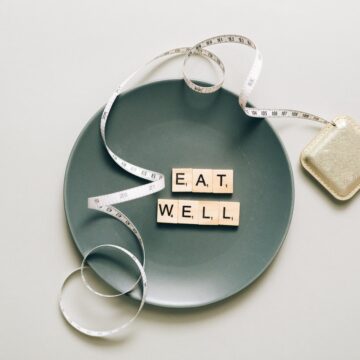
- One of the best ways to lower your breast cancer risk is to watch what you eat, says Dipali Sharma of John Hopkins Medicine.
- Though no single diet can cure breast cancer, healthy choices can contribute to prevention and risk reduction.
- In the US, 1 in 8 women will develop invasive breast cancer at one point in their life, according to the American Cancer Society.
About 1 in 8 U.S. women will develop breast cancer over the course of her lifetime. In fact, the American Cancer Society says that around 268,600 new cases of invasive breast cancer will be diagnosed this year.

While no single food or diet can prevent or cause breast cancer, a person’s dietary choices can significantly reduce their risks of developing the disease as well as promote general health.
“Your diet may not be able to cure breast cancer, but it plays a role in prevention,” says Dipali Sharma, PhD, of Johns Hopkins Medicine.
Here are science and doctor-backed tips, according to The Healthy, about the foods that can prevent breast cancer as well as those that can increase your risks.
Curb your fat intake

Decreasing dietary fat and increasing veggie, fruit, and grain consumption to up to 5 servings a day, is found by a study in the Journal of Nutrition involving over 48,000 postmenopausal women, to be linked to a lower risk of dying from breast cancer.
Rather opting for unsaturated fat over saturated fat, participants just slashed their intake from 35 percent to 20 percent while upping their fruits, veggies and grains intake.
Switch out some animal protein

Trade off your red meat such as beef, for a leaner choice, like poultry. According to a recent International Journal of Cancer study, women who ate the highest amount of red meat had higher chances of getting invasive breast cancer than those who ate the most chicken. Sharma recommends eating one pound (at most) of red meat a week and avoiding charred beef for the cancer-causing agents they contain.
Try the Mediterranean diet

The emphasis on fruits, veggies, and whole grains are crucial to the Mediterranean diet, which is another eating plan that is known for lowering the risk of breast cancer, according to another International Journal of Cancer (IJC) study. Sharma recommends filling up on plant-based protein sources such as beans and legumes and favoring fish over red meat.
Fill up on lots of leafy greens

When adding more veggies to your diet, pack in lots of leafy greens like spinach, watercress and kale, says Sharma. Due to the green carotenoid content of these greens, they are chock full of antioxidants which fight carcinogenic-free radicals.
Enjoy a cup of green tea

Catechins are compounds found in green tea known to be rich in antioxidants that help slash cancer risks, especially breast cancer, says a study found in the journal Nutrients. For protection against the disease, Sharma recommends adding one cup of green tea to your daily routine.
Cut back on alcohol

Limiting alcohol consumption greatly reduces your risk, according to the IJC Mediterranean diet study. “Alcohol is essentially a toxin, meaning it stresses the body as it works to get rid of it,” says Dr.Beth Freedman, a breast surgeon at CareMount Medical. To help lower your risks, drink no more than three glasses of wine a week.
Skip the processed foods

To gain additional protection against the disease and boost overall health as well, opt for whole foods and scale down on high salt and sugar. Dr. Freeman suggests eating cancer-causing foods at a minimum, including pickled foods and charred meat.
Make healthy choices to manage your weight

Studies have shown an apparent relationship between obesity and higher risks of some cancers. But you can trim down those pounds and risks by eating a healthy diet of fruits, veggies and whole grains.
Additionally, study outcomes showed that when women eat healthily, they are more energetic and tend to experience lesser side effects of the disease as well as chemotherapy. Plus, Dr. Freedman noted that their recovery from surgery tends to be faster.
Source: The Healthy
